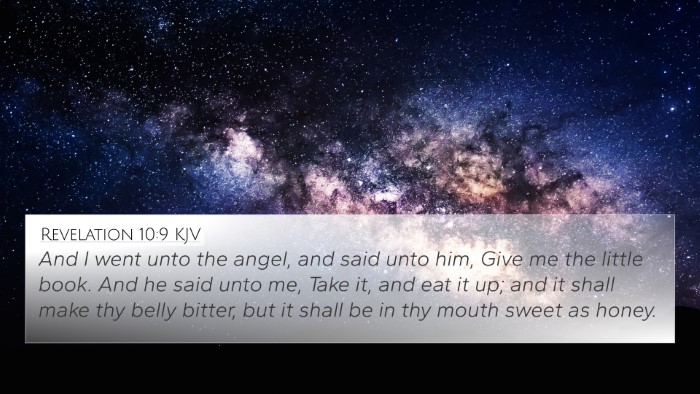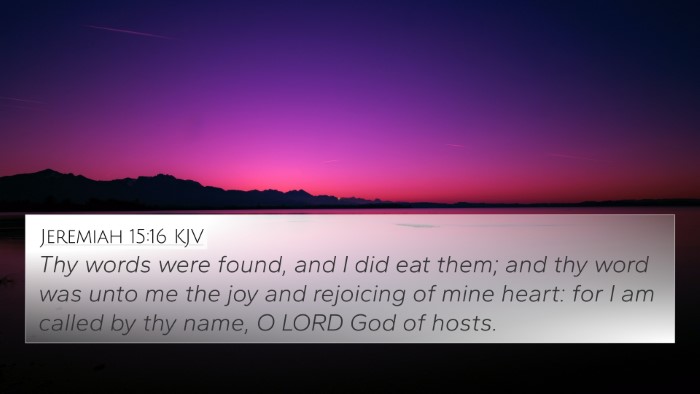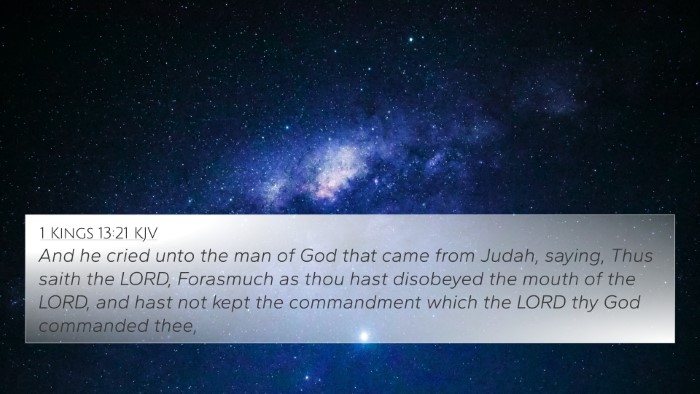Ezekiel 2:8 states: “But you, son of man, hear what I say to you. Do not be rebellious like that rebellious house; open your mouth and eat what I give you.” This verse sets the stage for the prophetic mission of Ezekiel, emphasizing the importance of obedience and receptivity to God’s message.
Meaning and Interpretation
The book of Ezekiel is notable for its vivid imagery and powerful prophecies aimed at Israel's restoration. In this verse, God speaks directly to Ezekiel, instructing him to listen attentively and to consume the word He provides. This passage serves as both a call to prophetic duty and a warning against disobedience.
Insights from Public Domain Commentaries
- Matthew Henry: Henry highlights the significance of Ezekiel’s obedience to God's command. He draws a parallel between the act of eating the scroll and internalizing God’s will, suggesting that the prophet must digest the truth in order to relay it effectively. This emphasizes the necessity of personal engagement with divine truth in prophetic ministry.
- Albert Barnes: Barnes interprets “do not be rebellious” as a reminder of Israel's habitual defiance against God. Ezekiel, as a singular voice among a rebellious people, is called to be different, to be receptive rather than resistant. His role is to convey God’s messages accurately, requiring him to fully embody the words he is given.
- Adam Clarke: Clarke focuses on the metaphor of eating God’s word, relating it to the consumption of spiritual nourishment. He argues that this act signifies the need for intimate acquaintance with divine revelation, encouraging believers to seek understanding and application of Scripture in their lives.
Thematic Connections and Cross-References
This verse not only establishes the theme of obedience to God’s word but also links to various other Scripture passages that reflect similar themes. Below are some relevant cross-references:
- Jeremiah 15:16: "Your words were found, and I ate them, and your word was to me the joy and rejoicing of my heart; for I am called by your name, O Lord God of hosts." This verse mirrors Ezekiel’s experience of internalizing God’s message.
- Psalm 119:103: "How sweet are your words to my taste, sweeter than honey to my mouth!" This emphasizes the sweetness and desirability of God’s words.
- Revelation 10:9-10: "So I went to the angel and told him to give me the little scroll. And he said to me, 'Take and eat it; it will make your stomach bitter, but in your mouth it will be sweet as honey.'" This passage echoes the same metaphor of consuming God’s word.
- Isaiah 50:4: "The Lord God has given me the tongue of the learned, that I should know how to speak a word in season to him who is weary. He awakens me morning by morning..." Highlights the necessity of receiving God’s instruction daily.
- Matthew 4:4: "But He answered and said, 'It is written, Man shall not live by bread alone, but by every word that proceeds from the mouth of God.'" This underscores the essential nature of God's word for life.
- Luke 8:18: "Therefore take heed how you hear. For whoever has, to him more will be given; and whoever does not have, even what he seems to have will be taken from him." This speaks to the importance of being attentive to God’s word.
- Hebrews 4:12: "For the word of God is living and powerful, and sharper than any two-edged sword..." Illustrates the dynamic nature of God’s word, urging readiness to receive it.
- James 1:22: "But be doers of the word, and not hearers only, deceiving yourselves." This connects to Ezekiel's mandate to not just hear but actively engage with God's message.
- 1 Peter 2:2: "As newborn babes, desire the pure milk of the word, that you may grow thereby." Relates the necessity of nurturing oneself with God’s word for growth.
Application in Modern Context
For contemporary readers, Ezekiel 2:8 invites a reflective response to how we engage with Scripture. It challenges us to consider:
- Are we open and receptive to God’s messages, or do we show resistance like the rebellious house?
- How can we ensure that we are not merely hearing God’s word but truly consuming and applying it in our lives?
- In what ways can we encourage others to engage with Scripture in a meaningful manner?
Conclusion
Ezekiel 2:8 is a profound reminder of the importance of listening to God’s word and acting upon it. As we delve into this text, let us be mindful of the connections between verses, understanding that each Scripture builds upon the other to reveal God’s overarching narrative. Through a comparative Bible verse analysis and utilizing tools for Bible cross-referencing, we can deepen our understanding of the Scriptures and align our lives with God’s will.
Further Study
For those interested in exploring more about cross-referencing Biblical texts:
- Consider utilizing a Bible concordance to find links between different verses.
- Engage in a cross-reference Bible study to uncover deeper meanings behind the connections.
- Refer to a Bible cross-reference guide to enhance your study sessions.
- Explore comprehensive Bible cross-reference materials to expand your knowledge.













